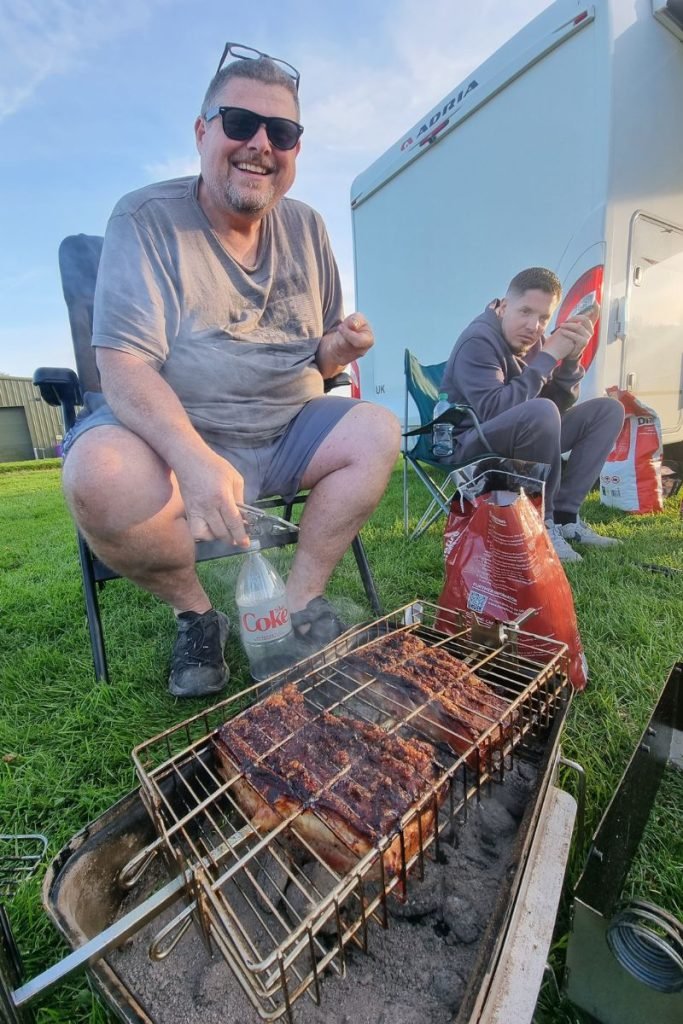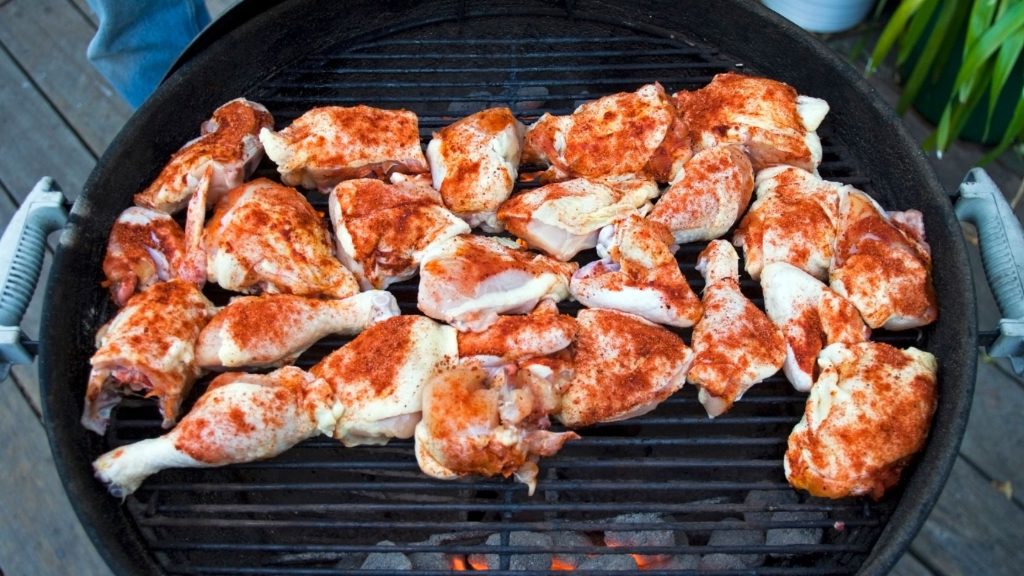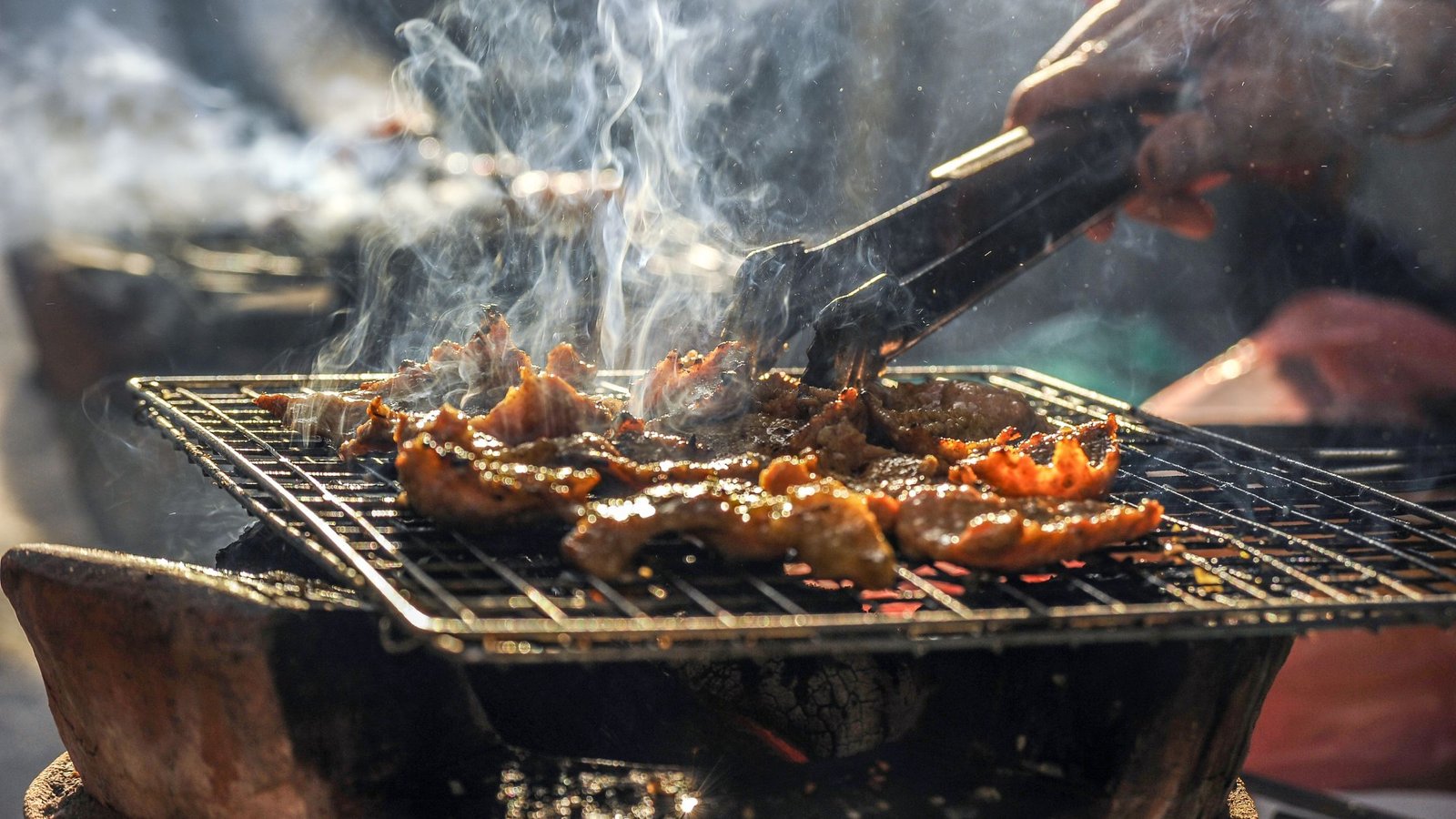Barbecue (BBQ) is more than just grilling meat—it’s an art form, a tradition, and a way to bring people together. One essential aspect of achieving mouthwatering BBQ flavors is the use of herb and spice rubs. These rubs add depth, complexity, and a unique twist to your grilled masterpieces. In this article, we’ll explore the world of BBQ herb and spice rubs, learning how to create your own custom blends that will take your BBQ game to new heights.
Introduction
BBQ herb and spice rubs are dry blends of herbs, spices, and other flavorings that are applied to meat before grilling. They help create a delicious crust on the outside of the meat while infusing it with layers of flavor. By making your own rubs, you can tailor the taste to your preferences and experiment with various combinations to create signature flavors.
The Importance of BBQ Herb and Spice Rubs
BBQ herb and spice rubs play a crucial role in elevating the taste of grilled meat. They enhance the natural flavors, add complexity, and provide a personalized touch to your BBQ creations. Whether you’re grilling chicken, beef, pork, or even vegetables, a well-crafted rub can transform an ordinary dish into a culinary delight.
Understanding Flavor Profiles
Before diving into the world of BBQ rubs, it’s essential to understand the different flavor profiles and the kind of taste they impart to your meat.
Sweet and Smoky Rubs
Sweet and smoky rubs are popular choices for BBQ enthusiasts. These rubs often feature a combination of brown sugar, paprika, cumin, and other spices that add a sweet and rich flavor to your meat. The smokiness comes from ingredients like smoked paprika or chipotle powder, lending a distinct BBQ aroma.
Spicy and Heat Rubs
If you enjoy a bit of heat and a fiery kick in your BBQ dishes, spicy and heat rubs are the way to go. These rubs typically incorporate ingredients such as chili powder, cayenne pepper, black pepper, and various spices that deliver a tantalizing heat to your meat. They add a bold and zesty flavor that will satisfy spice lovers.
Tangy and Citrusy Rubs
For those seeking a tangy and refreshing twist to their BBQ, tangy and citrusy rubs are an excellent choice. These rubs often feature ingredients like citrus zest, lemon pepper, vinegar, and herbs such as thyme or rosemary. They provide a bright and lively flavor profile that pairs well with poultry or seafood, bringing a burst of freshness to your grill.
Essential Ingredients for BBQ Rubs
To create delicious and well-balanced BBQ herb and spice rubs, it’s crucial to have a collection of essential ingredients. These ingredients form the foundation of your rub and contribute to its overall flavor. Here are some key ingredients to consider:
Salt and Sugar
Salt is a fundamental component of any BBQ rub, as it helps to season the meat and enhance its natural flavors. Sugar, on the other hand, adds a touch of sweetness and aids in caramelization, creating a desirable crust on the grilled meat.
Paprika and Chili Powder
Paprika and chili powder provide the base flavors for many BBQ rubs. They contribute earthy, smoky, and slightly sweet notes to the rub, setting the stage for a delicious BBQ experience.
Garlic and Onion Powder
Garlic and onion powder add depth and savory undertones to your rub. They bring out the natural umami flavors in the meat and work harmoniously with other spices and herbs.
Black Pepper and Cayenne Pepper
Black pepper and cayenne pepper provide a gentle heat and a peppery kick to your rub. They add complexity and dimension to the overall flavor profile, complementing the other ingredients.
Herbs and Spices
Herbs and spices are where you can truly get creative and add a personal touch to your BBQ rubs. Some popular choices include thyme, rosemary, oregano, cumin, coriander, and mustard powder. These ingredients lend unique aromas and flavors, making your rubs stand out.
Optional Additions
Depending on your preference, you can incorporate additional ingredients to customize your rubs. This could include ingredients like smoked paprika for a deeper smoky flavor, dried herbs like basil or parsley, or even a hint of cinnamon for a surprising twist.

Creating Your Custom BBQ Rub Recipe
Now that you have an understanding of the flavor profiles and essential ingredients, it’s time to create your own custom BBQ rub recipe. Here are some steps to guide you through the process:
Selecting a Base Flavor
Start by selecting a base flavor that aligns with your taste preferences and the type of meat you’ll be grilling. Determine whether you want a sweet, spicy, tangy, or a combination of flavors to be the dominant note in your rub.
Balancing the Flavors
Once you’ve chosen a base flavor, it’s crucial to balance the other components of your rub. Consider the intensity of each ingredient and how they interact with one another. Aim for a well-rounded blend that showcases a harmonious marriage of flavors.
Experimenting with Ingredients
Don’t be afraid to experiment with different herbs, spices, and additional ingredients. Start with small quantities and adjust as you go, noting the impact of each addition on the overall taste. Keep a record of your experiments, noting the ratios and combinations that yield the best results.
Considering Dietary Restrictions
When creating your custom BBQ rub, it’s essential to consider any dietary restrictions or preferences. If you or your guests have allergies or follow specific diets, such as gluten-free or vegan, be mindful of the ingredients you include in your rub. There are plenty of alternatives available that can still deliver fantastic flavors without compromising anyone’s dietary needs.
Preparing and Applying the Rub
Once you have your custom BBQ rub recipe ready, it’s time to prepare and apply it to your meat. Follow these steps for the best results:
Preparing the Meat
Before applying the rub, ensure that the meat is clean and properly trimmed. Pat it dry with a paper towel to remove excess moisture, allowing the rub to adhere better. This step ensures even seasoning and promotes better flavor penetration.
Applying the Rub
Generously coat the meat with your custom BBQ rub, making sure to cover all sides. Use your hands to massage the rub into the meat, ensuring that it adheres well and penetrates the surface. For larger cuts of meat, consider using a rub shaker or a brush to evenly distribute the seasoning.
Resting Time
After applying the rub, allow the meat to rest for some time before grilling. This resting period allows the flavors to meld together and enhances the overall taste. Depending on the type and size of the meat, a rest of 30 minutes to a few hours in the refrigerator is ideal.
Storing and Shelf Life of BBQ Rubs
Proper storage of your homemade BBQ rubs is crucial to maintain their freshness and flavor. Here are some guidelines to follow:
Proper Storage Containers
Store your BBQ rubs in airtight containers that are moisture-resistant. Mason jars, spice jars, or vacuum-sealed bags are excellent options. Make sure to label the containers with the rub’s name and date of creation for easy identification.
Shelf Life Guidelines
While the exact shelf life may vary depending on the ingredients used, most BBQ rubs can be stored for up to six months to a year. However, for optimal flavor and potency, it’s best to use the rubs within the first few months.
Signs of Spoilage
Always check for signs of spoilage before using your BBQ rubs. If you notice any unusual smells, changes in color or texture, or the presence of mold, it’s best to discard the rub and make a fresh batch.

Enhancing BBQ Flavor with Rubs
BBQ rubs can be used in different ways to enhance the flavor of your grilled dishes. Consider these options:
Dry Rubs vs. Wet Rubs
Dry rubs are applied directly to the meat’s surface, forming a flavorful crust during grilling. Wet rubs, on the other hand, incorporate liquid ingredients like oil or vinegar to create a paste-like consistency. They provide both flavor and moisture to the meat. Experiment with both methods to find what works best for your preferences.
Marinating vs. Dry Rubs
While rubs are typically applied directly before grilling, you can also marinate the meat with the rub in advance. Marinating allows the flavors to penetrate deeper, resulting in a more pronounced taste. For marinating, use a wet rub or combine a dry rub with a liquid component like citrus juice or soy sauce.
Pairing Rubs with Different Meats
Different meats lend themselves to different flavors. Consider the characteristics of
the meat you’re grilling and choose rubs that complement their natural flavors. For example:
Chicken: Tangy and citrusy rubs work well with chicken, enhancing its delicate taste. Consider incorporating herbs like thyme or rosemary for added depth.
Beef: Rich and bold flavors pair nicely with beef. Spicy and heat rubs, along with smoky elements like paprika and cayenne pepper, create a perfect match.
Pork: Sweet and smoky rubs complement the natural sweetness of pork. Brown sugar, paprika, and a hint of cinnamon can create a mouthwatering crust.
Seafood: Light and refreshing rubs are ideal for seafood. Citrusy flavors, herbs like dill or parsley, and a touch of black pepper can elevate the taste of fish or shrimp.
Tips and Tricks for Perfect BBQ Rubs
To master the art of creating exceptional BBQ rubs, consider these tips and tricks:
Experiment and Adjust
Don’t be afraid to experiment with different ingredient combinations and proportions. Taste and adjust along the way until you find the perfect balance that suits your palate.
Keep a Rub Recipe Journal
Maintain a rub recipe journal where you can record your successful blends and adjustments. This allows you to recreate your favorite rubs and make improvements over time.
Use Fresh Ingredients
Freshness is key when it comes to spices and herbs. Use high-quality, fresh ingredients to ensure the best flavors in your rubs.
Don’t Overpower the Meat
While you want your rub to impart flavor, be mindful not to overpower the natural taste of the meat. The rub should enhance, not dominate, the overall dish.
Let the Rub Rest
Allow the seasoned meat to rest for a short period before grilling. This allows the flavors to meld together and ensures even distribution.
Become a BBQ rub Master!
Making your own unique BBQ herb and spice rubs is an exciting way to elevate your grilling game. With a variety of flavors, ingredients, and combinations to explore, you can create custom blends that suit your taste preferences and make your BBQ dishes stand out. By following the steps outlined in this article and experimenting with different flavors, you’ll be well on your way to becoming a BBQ rub master.
Get ready to impress your family and friends with tantalizing flavors and mouthwatering grilled creations!
BBQ Advice…
How long should I let the rub sit on the meat before grilling?
It is recommended to let the rub sit on the meat for at least 30 minutes to a few hours. This allows the flavors to penetrate the meat and enhances the overall taste.
Can I use BBQ rubs for vegetarian or vegan dishes?
Absolutely! BBQ rubs can add flavor to grilled vegetables, tofu, or plant-based meat substitutes. Choose ingredients that align with your dietary preferences and enjoy deliciously seasoned dishes.
Can I use the same rub for different types of meat?
While you can use the same rub for different meats, consider the flavor profiles and how they complement each type. It’s often more enjoyable to tailor the rubs to the specific meat you’re grilling.
Where can I find high-quality spices and herbs for making my own rubs?
Most supermarkets have an excellent variety of herbs and spices.
Can I adjust the level of spiciness in my BBQ rub?
Absolutely! You have complete control over the spiciness of your BBQ rub. Increase or decrease the amount of spicy ingredients like chili powder or cayenne pepper to suit your heat tolerance.
Can I use BBQ rubs for oven-roasted dishes?
Yes, BBQ rubs can be used for oven-roasted dishes as well. Simply apply the rub to the meat before roasting and let the flavors infuse during the cooking process.
How should I store leftover BBQ rubs?
Store leftover BBQ rubs in airtight containers in a cool, dry place away from direct sunlight. This helps to preserve their flavors and prolong their shelf life.
Can I use BBQ rubs for other cooking methods, such as pan-searing or slow cooking?
Absolutely! BBQ rubs can enhance the flavors of various cooking methods. Adjust the quantity of the rub according to the size of the dish and cooking technique.
Get ready to embark on a flavor-filled journey with your homemade BBQ herb and spice rubs. Explore different combinations, make adjustments to suit your taste, and enjoy the satisfaction of creating unique and delicious dishes that will impress your family and friends.
Remember, the key to a successful BBQ rub is creativity, experimentation, and a passion for mouthwatering flavors. So fire up the grill, embrace the sizzle, and indulge in the tantalizing tastes of your very own BBQ creations.






0 Comments